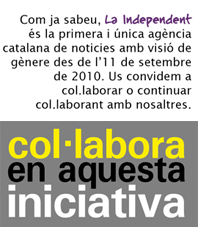
To advance gender equality among all people on the planet is necessary to advance the eradication of poverty, discrimination, violence and loss of rights in all aspects of life. This means improve the status and position of the most marginalized populations, particularly women and girls.
The 2015 has two important milestones that are crucial for global gender equality agendas: the twentieth anniversary of the Beijing Declaration and Platform for Action, and the fifteenth anniversary of Security Council Resolution 1325 on Women, Peace, and Security. The UN will review progress on implementing both agendas this year. Also, in September, the General Assembly adopted a new Sustainable Development Agenda, replacing the Millennium Development Goals (MDGs) which ending their term this year. And of course, gender equality and empowerment of women will be fundamental to the success of this new agenda, as they were in the progress of the MDGs.
To advance gender equality among all people on the planet is necessary to advance the eradication of poverty, discrimination, violence and loss of rights in all aspects of life. This means improve the status and position of the most marginalized populations, particularly women and girls, in education, health, nutrition, access and control over economic assets and development resources, the political opportunity and absence of coercion and violence.
Furthermore, it is essential to note that inequality occurs not only in the public sphere but also in the private sphere as the home and the emotional relationships. Addressing parallel both public and private sectors is imperative if we are to overcome the structural causes of gender inequality.
Another vital issue for development is sexual and reproductive autonomy. Development policies must help ensure that the most vulnerable populations, especially women, can decide about their own body. The agenda of gender equality in development should take into account the promotion and protection of sexual and reproductive rights, which are the most violated and forgotten among all human rights. Therefore, development policies should be free from influences of religious and conservative dogmas.
In the current context, many voices of feminists and women’s organizations are calling attention to governments and development policymakers to tell them that advancing women’s empowerment and gender equality is central to development, human rights, peace and security.
AWID (Association for Women’s Rights in Development) has indicated that “the active and meaningful participation of women’s rights organizations and gender equality advocates is crucial to ensuring that human rights, especially women’s rights and gender equality, are included and advanced in the new development framework”.
In addition, the of Post2015 Women’s Coalition (an international network of feminist, women’s rights, women’s development, grassroots and social justice organizations) noted the need to“address the structural factors that perpetuate crisis, inequality, insecurity and human rights violations. In the wake of the financial crisis, which has had a disproportionate and particular impact on women, feminists and others have proposed transforming policy responses and rethinking the mainstream development model to promote greater equality, equity, security and sustainability.To this end, a post 2015 framework must ensure that macroeconomic policies and the international financial system work to advance gender equality, women’s empowerment and women’s human rights”.
The GADN (a network of 70 of the UKs leading development NGOs and gender experts), says, based on his experience that “the most effective way to achieve gender equality is through a ‘twin track’ approach, combining a standalone goal with mainstreaming throughout the framework.A standalone goal on gender equality is vital because of the political commitment and dedicated resources that a specific focus brings.Targets across the framework must be transformative so that they reflect a lasting change in the power and choices women have over their own lives and tackle the root causes of inequality”.
On the other hand, the Feminist Post2015 Declaration, signed by more than 350 organizations in 143 countries, demanded the fulfillment of gender equality and women’s human rights through the post 2015 development agenda, and that governments prioritize gender, social economy and ecological justice.
This Declaration claiming “a paradigm transformation from the current neoliberal economic model of development, which prioritizes profit over people, and exacerbates inequalities, war and conflict, militarism, patriarchy, environmental degradation and climate change. Instead, we call for economic models and development approaches that are firmly rooted in principles of human rights and environmental sustainability, that address inequalities between people and states, and that rebalance power relations for justice so that the result is sustained peace, equality, the autonomy of peoples, and the preservation of the planet”.
Although, the Post 2015 Sustainable Development Agenda, review of the Beijing Platform + 20 and 1325 Resolution are an opportunity for the women’s movement emphasizes to the states and the international community to promote gender equality and the women’s empowerment, there is still a challenging way, because wars, disease, conflict, violence against women, trafficking in women, racism, classism, rape, economic migration, child marriage, poverty, homophobia, unemployment, gender inequality and gender-based inequities, among other factors of oppression, continue to affect girls’ and women’s ability to realize their rights and their full potential as citizens and equal partners in the development of their communities.
Finally, we must not forget that states have the obligation to guarantee human rights, promote gender equality and women’s empowerment, but also to make transparent the provision of economic resources devoted to specific actions, and accountable for the results and impact generated by gender interventions in development.





